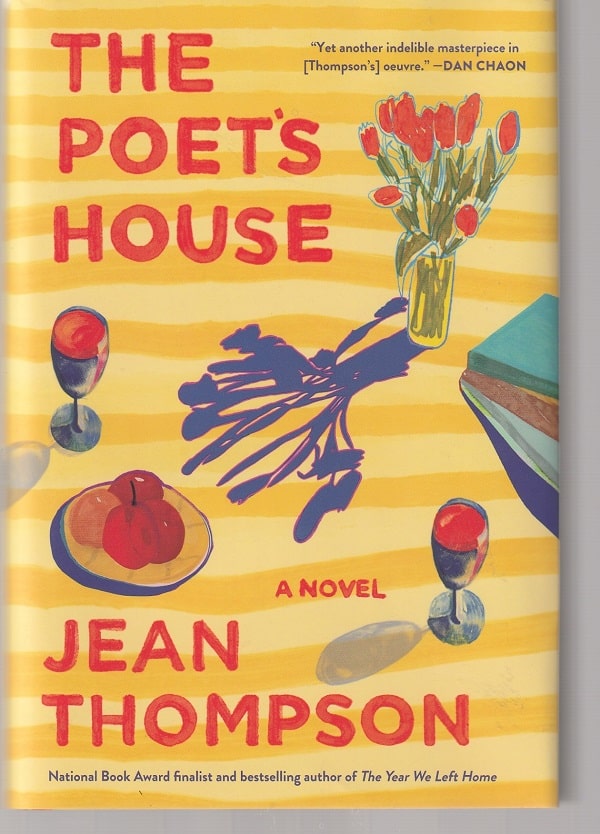Carla Sawyer is a tall, smart-alecky 21-year-old who’s working for a landscaping company until she figures out what to do with her life. She’s on a job in one of the tonier areas of Marin County, north of San Francisco, at a not-terribly-toney, oddly put together home, somewhat isolated from any neighbors.
Her client is Mrs. Boone, but, as Carla’s working, an odd middle-aged guy walks up and starts declaiming poetry at her. Turns out, he lives there as a kind of guest, and it turns out that, as he explains, Mrs. Boone is much better known as Viridian, like the color, a kind of green. Whatever.
He wants to make conversation and asks how Carla likes California. “I mean, it’s like walking around inside a giant piece of fruit, isn’t it?” When she says she’s never lived anywhere else, he says:
“A California native? Wow. I didn’t think there were any of those.”
“We were hunted almost to extinction for our pelts, but we’re making a comeback.”
Viridian shows up then, a woman past 70 who, Carla notices, has “deep hinged lines around her mouth…lines in her wide forehead…like a beautiful face carved in stone.”
Soon enough, Carla learns that the guy is Oscar Branco, which means nothing to her. He tell her he’s a relatively well-known poet, but nothing compared to Viridian who is “the goddam real thing.”
Viridian’s been writing since the 1970s and is highly respected, but has always been overshadowed by Mathias, her lover who died young, a suicide, the “most famous, brilliant poet of his era.”
A sparkling story
That’s the set-up for a sparkling, relaxed, ambling story in which Carla, someone who’d never before paid much attention to poetry, is drawn step-by-step into a friendship with Viridian and membership in her circle of admirers.

It’s a bit of a risk for a novelist to build a book around the insular world of poets, especially poets well past their youth. There are stories that Carla hears about a past filled with hot sex, doomed romance and a lot of drugs and booze. But that was decades ago.
Now, Viridian and those around her talk more about craft and getting stuff published, and they worry about money and aging. And they take an interest in Carla because Viridian finds an affinity with the young woman. And because Carla discovers an affinity with poetry, a yearning to take poems apart and understand them.
She is, in a way, a student for all of the poets, but especially Viridian. She is unformed and untaught, and, although not a poet herself, she is hungry to use poetry to look at life and its questions.
Jean Thompson isn’t a poet either, as far as I can tell. She’s a Chicago-born novelist and short story writer who taught creative writing many years at the University of Illinois at Urbana-Champaign.
Caught up in poets and poetry
She tells the story of The Poet’s House with a quiet subtlety, and readers will find themselves not just caught up in the lives of these poets but also caught up with the idea and substance of poetry. Carla is a stand-in for readers, most of whom aren’t likely to have much knowledge or interest in poetry.
Because of some sort of learning disability, Carla has a hard time reading any kind of book, but she’s bright and alive as her snappy comments, such as about being hunted for pelts, indicate. For her, poetry comes alive when Viridian reads to her and when she tracks down online recordings of poets reading their poetry.
There are elements of the novel that seem at many points to threaten to ratchet up the tension and action and twist the story out of shape. For instance, there’s a constant danger of fire in the dry California landscape, and trouble erupts between Carla and her live-in boyfriend Aaron, an IT guy, and Carla gets fired by her landscaping boss.
A door into something very new
Thompson, though, keeps a tight focus on the unlikely friendship of Carla and Viridian. Carla, with her openness to learning and to really hearing the words of poets, is a gift of the gods to the older woman and her circle. For their part, they give her a door into something very new and needed in her life.
The Poet’s House is a thoughtful novel that deals deftly with a range of questions, such as: Does a woman have to choose love and family or the freedom to pursue art or whatever leads to fulfillment? How much should a poet, or anyone, worry about money and health? What’s the right reaction when a lover wants to do something new, such as taking up an interest in poetry like Carla or considering a move to Vancouver like Aaron?
None of these questions, though, is at the center of Thompson’s novel.
The core of The Poet’s House is Carla’s journey into her friendship with Viridian and, from there, into a wider, scarier world of risk and wonder. It’s a fun, mindful journey for Thompson’s readers as well.
Patrick T. Reardon
8.16.22
This review originally appeared at Third Coast Review on 8.15.22
Written by : Patrick T. Reardon
For more than three decades Patrick T. Reardon was an urban affairs writer, a feature writer, a columnist, and an editor for the Chicago Tribune. In 2000 he was one of a team of 50 staff members who won a Pulitzer Prize for explanatory reporting. Now a freelance writer and poet, he has contributed chapters to several books and is the author of Faith Stripped to Its Essence. His website is https://patricktreardon.com/.
